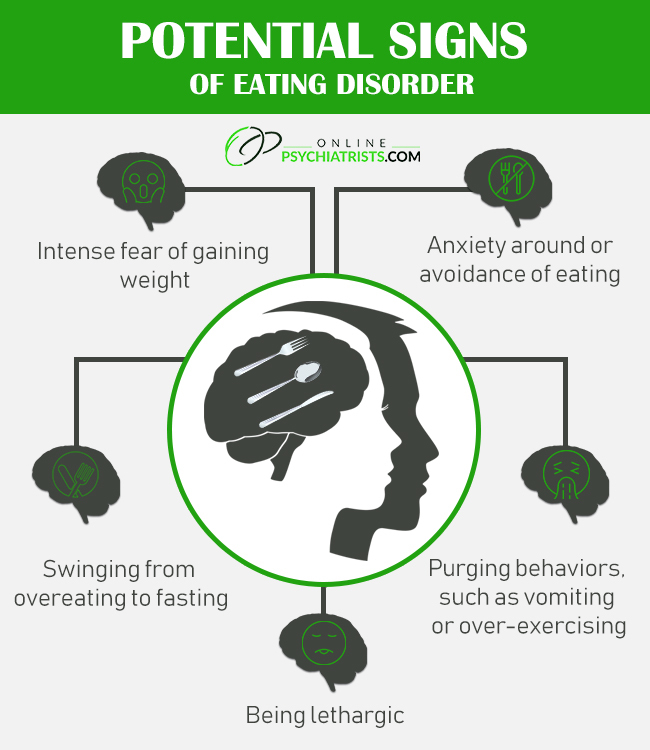

Table of contents
An eating disorder is a dangerous condition because of the many physical and mental consequences it carries. Untreated abnormal eating behaviors lead to a wide range of complications — from depression, anxiety and isolation to hair loss, digestive problems and even death. Recovery is possible. Dr. Zlatin Ivanov is a leading expert committed to providing evidence-based and effective eating disorder treatment tailored to your requirements.
 Eating disorders are serious mental illnesses characterized by a distorted attitude towards food and an unhealthy obsession with weight, body shape, and appearance. People with abnormal eating behaviors may struggle to identify their actual body weight and shape and may have a distorted self-image. They could experience a strong fear associated with weight gain even if they are underweight. The three main forms of eating disorders are anorexia nervosa, bulimia nervosa, and binge eating disorder. Abnormal eating behaviors can have major physical and psychological effects, and recovery may necessitate professional help.
Eating disorders are serious mental illnesses characterized by a distorted attitude towards food and an unhealthy obsession with weight, body shape, and appearance. People with abnormal eating behaviors may struggle to identify their actual body weight and shape and may have a distorted self-image. They could experience a strong fear associated with weight gain even if they are underweight. The three main forms of eating disorders are anorexia nervosa, bulimia nervosa, and binge eating disorder. Abnormal eating behaviors can have major physical and psychological effects, and recovery may necessitate professional help.
Eating disorders are complex mental illnesses that can have detrimental effects on the body and the mind.
Some of the risks and symptoms of abnormal eating behaviors include:
Physical risks:
Psychological symptoms:
Seek professional treatment as soon as possible if you suspect that you or someone you know has an abnormal eating behaviors. Failure to receive timely treatment can render eating disorders challenging to recover from and can have detrimental physical and psychological effects.
My friend recommended Dr. Ivanov as the best NYC eating disorder psychologist and I decided to schedule a consultation with him right away. He helped me get through some of the toughest times of my life and I am so thankful for his help and care. I now recommend him to everyone myself!
Google ReviewsHarvard Certified
Nationally Recognized
Book AppointmentThere are several different types of abnormal eating behaviors, including:
Eating disorders are serious mental illnesses that require prompt and effective care. If you or someone you know is struggling with an abnormal eating behaviors, it's essential to reach out to a double-board-certified psychiatrist specializing in addiction treatment for guidance and support.
Like most mental illnesses, multiple factors influence eating disorders. A combination of psychological, biological and environmental issues contributes to the development of these disorders. That’s why you need to consult a doctor well-versed in both the physical and psychological aspects of the condition.
Your eating disorder psychologist uncovers the unique set of circumstances that likely led to your illness.
Working together, you and your eating disorder therapist can address each factor, which may include:
Based on our observations, family and childhood traumas, sexual abuse, peer pressure, and stressful life transitions also create an environment where ED may result. Your psychiatrist treats each factor, as it applies to your specific case. And successful treatment modalities do exist.
The diagnosis of eating disorders can only be made by a mental health professional, such as a psychologist or psychiatrist. The diagnosis is typically based on a combination of factors, including a thorough medical and psychological evaluation, as well as a review of the person's medical and family history.
During the evaluation, the healthcare professional will ask the person questions about their eating habits, thoughts about food and weight, and other related behaviors. The healthcare professional will also assess the person's physical health and look for any signs or symptoms of an eating disorder.
It is important to note that there is no one test that can diagnose an abnormal eating behaviors. The diagnosis is based on a combination of factors and requires a thorough evaluation by a qualified professional. If you suspect that you or someone you know has an eating disorder, it is critical that you receive timely treatment from a mental health professional.

Eating disorders are mostly treated with a combination of therapy, medication, and nutrition counseling. The particular treatment plan will be determined by the requirements of the individual and may vary based on the kind and complexity of the abnormal eating behaviors.
Common treatments for eating disorders include:
It is important to note that treatment for eating disorders is often a long-term process and may involve multiple stages, including inpatient treatment, partial hospitalization, and outpatient treatment. The goal of treatment is to help individuals develop healthy eating habits and a positive body image and to manage any co-occurring mental health conditions.
The National Eating Disorders Association reports that more than 30 million people in the U.S. have struggled with some form of the abnormal eating behaviors. Of these, 20 million are female, which is two-thirds of the total. Another study states that at least one American dies due to an eating disorder every 62 minutes.
According to ANAD's eating disorder statistics, 9% of US citizens, or 28.8 million Americans, will have an eating disorder over their lifetime, with genetic heredity accounting for 28% to 74% of the risk. Approximately 26% of those suffering from eating disorders attempt suicide.
More than 70% of those suffering from eating disorders don’t get treatment due to the stigma of the disorder, misconceptions surrounding it, a lack of education, and sometimes, misdiagnosis. These numbers highlight the gravity of this illness and why you need early diagnosis and treatment. The good news is that advances in psychotherapy are providing effective eating disorder treatments.
Treatment for eating disorders may involve anything from a short course of therapy sessions to an inpatient hospital stay. A two-week hospital stay for eating disorder treatment without insurance can cost more than $19,000. And over $1,200 may be spent per day for a one-month stay at a residential facility offering comprehensive rehabilitation.
If you have abnormal eating behaviors insurance, some of the aforementioned costs may be reimbursed. Individual costs for visits to a physician, therapist, or nutritionist, as well as therapy sessions and medication, may be included in outpatient care.
Eating disorder treatment is classified into five levels. The severity of an eating disorder determines the sort of therapy required. The type and frequency of symptoms being experienced, any co-occurring disorders that require treatment, and the need for medical monitoring will all be considered when determining the appropriate level of care. Eating disorder treatment levels include:
The majority of medical insurance companies provide coverage for anorexia and other eating disorder treatments. But, your specific insurance plan, the state you live in, and the severity of your condition will all have an impact on how much of your treatment may be reimbursed.
For instance, eating disorder treatment insurance coverage may be declined if your weight is too high to treat anorexia or if you haven't had any health problems as a result of bulimia.
If you are looking for an effective eating disorder treatment in New York, сontact Dr. Zlatin Ivanov. He and his team provide customized care in a supportive setting, addressing all aspects of life affected by eating disorders. Dr. Ivanov's extensive experience has helped him succesfully treat patients and improve both their mental health and quality of life.
 Our Locations
Our Locations
The Chrysler Building
405 Lexington Ave, #2601
New York, NY, 10174
Get Directions (Map)
300 Carnegie Center Drive #150K,
Princeton, NJ, 08540
Get Directions (Map)
701 Brickell Avenue, 1550#A,
Miami, FL, 33131
Get Directions (Map)